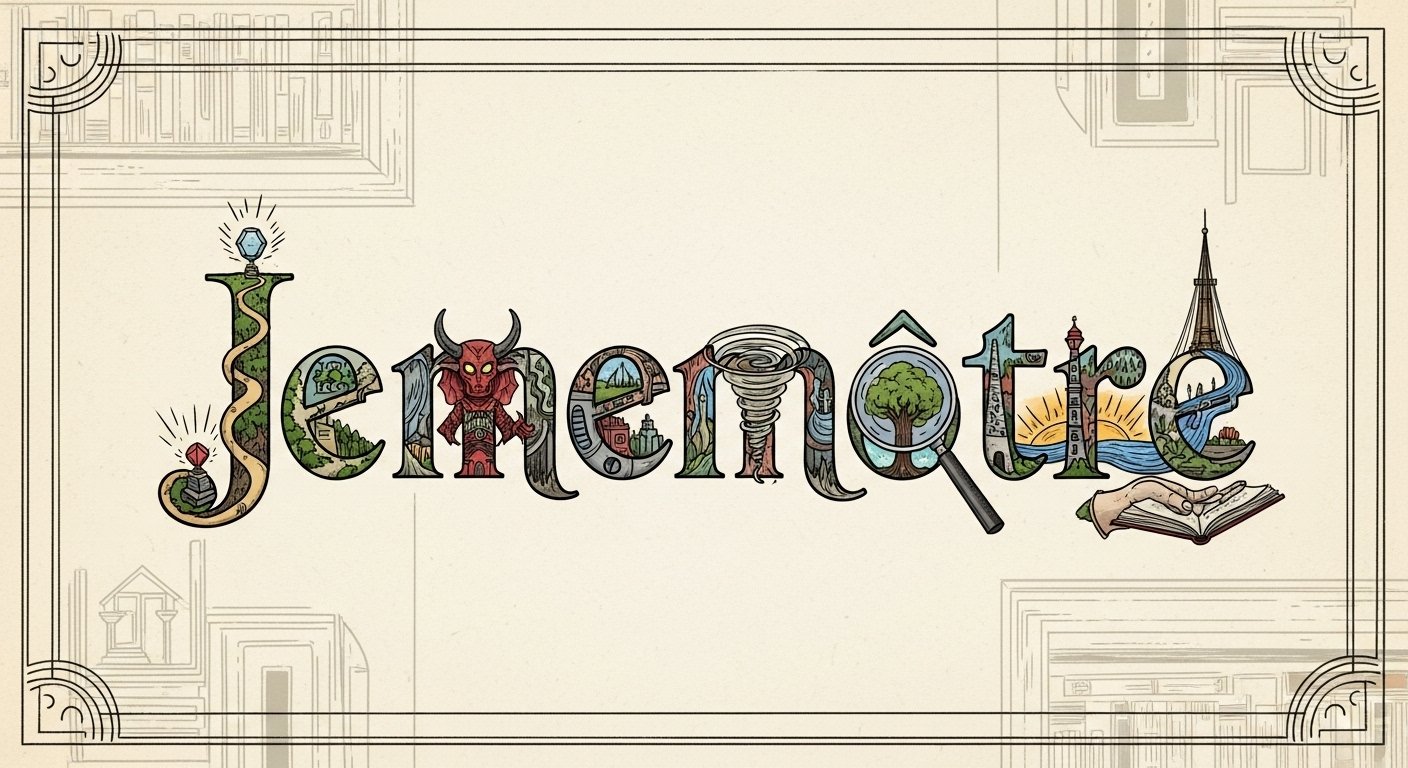Have you ever come across the word jememôtre and wondered what it means? You’re not alone! At first glance, it looks like a fancy French term—but it’s also a word that sparks curiosity. You might have found it on social media, in a sentence that felt poetic, or maybe someone used it in a conversation to sound deep. But what is jememôtre really about? Is it a real word? Is it made up? Is there something more hidden behind it? In this guide, we’ll break it all down in simple words. We’ll explore the possible meaning, how people are using it, and why it seems to stick in your mind once you hear it. Get ready to discover the story, vibes, and mystery that come with this unique and thoughtfully expressive term. Whether you’re here out of curiosity or you want to use jememôtre creatively yourself, this article has you covered—with friendly words, helpful tips, and fun ideas throughout.
What Does the Word Jememôtre Mean?
The word jememôtre is not listed in most French or English dictionaries. It’s actually a creative blend of French words. If we break it down: “je” means “I,” and “me” also means “myself.” Then we have “môtre,” which sounds like “maître” (meaning master) or “nôtre” (meaning ours). So, jememôtre might softly translate to something like “I, myself, of us” or “I own myself.” It’s not a standard French word, but people online are beginning to treat it like a poetic or emotional expression. It sounds intimate and deep—even if it’s technically not official. It gives a personal feeling, like saying, “I belong to myself,” or “I carry myself with meaning.” That’s probably why it’s getting attention.
Is Jememôtre a Real Word or Just Made Up?
Technically speaking, jememôtre is not a word you’ll find in a typical French dictionary. That said, many powerful words today were once made up. Think of terms like “selfie” or “hangry.” Jememôtre might not have a solid definition now, but that doesn’t mean it’s nonsense. Language is always changing. New words pop up when people need new ways to express something. Right now, jememôtre lives more in the art and poetry space than in grammar books. It’s a “living word,” shaped by the people using it. And that’s a pretty cool way to look at it.
Where Did Jememôtre Come From?
Many believe the word jememôtre first appeared in online circles like Twitter or Tumblr. These platforms love poetic phrasing and often create emotional mashups. French speakers and bilingual creatives tend to mix words for emotional impact. It might also come from modern art, music lyrics, or independence movements celebrating self-love and identity. Right now, its popularity continues to grow among people who feel deeply and express personally. Jememôtre doesn’t have one clear origin story—but that’s part of its charm. Users are shaping it together, almost like a team building a secret code for self-expression.
How Do People Use Jememôtre in Conversations?
Even though jememôtre isn’t in official grammar books, people still use it in emotional or poetic conversations. You might see someone post: “I don’t need approval. I jememôtre.” It carries a feeling of self-awareness, self-belonging, and independence. It’s like saying, “I am whole all by myself.” Think of it as soul-speak—something you’d say when you’re finally feeling connected to who you are. Many use it during moments of healing, growth, or reflection. It’s not just a stylish word—it serves a purpose. It wraps up a deep message in one soft, pretty package.
Jememôtre and the Rise of Emotional Language Online
Over the past few years, emotional language has taken over the internet. People aren’t afraid to speak from the heart anymore. Words like “boundaries,” “healing,” “softness,” or “divine energy” are everywhere. Jememôtre fits right in. It’s soft, but strong—a peaceful word with power. Many people are tired of being loud or dramatic online. They want quiet strength. Words like jememôtre offer that. They help express personal growth and the decision to choose love and calm over chaos. So while it feels poetic, it’s also part of a bigger language movement happening right now across social media.
What Does Jememôtre Say About Identity?
Jememôtre feels like a quiet declaration of self. It speaks louder than just saying, “I’m proud of who I am.” It says: “I know who I am. I own who I am. I don’t need others to define me.” That makes jememôtre powerful for anyone on a journey of self-discovery, self-love, or healing. It speaks to people who have been overlooked or misunderstood. It says you belong to yourself first. Not in a selfish way—but in a healthy, grounded way. For many individuals, especially those in sensitive or minority spaces, jememôtre is like waving a flag for personal identity with elegance.
Examples of Jememôtre in Real-Life Quotes
Want to see how people are using jememôtre in real life? Here are a few simple examples: “After all these years of hiding, I finally understand. I jememôtre.” Or this: “Don’t worry about fitting in. You jememôtre. That’s more than enough.” People use it like a noun, a verb, and even a full slogan. It’s open to interpretation, making it useful for creative writing, journals, social captions, or speeches. Just like “love” or “hope,” jememôtre works because it carries a feeling more than a rule. You can bend it, shape it, use it however your heart needs in that moment.
How You Can Use Jememôtre in Your Own Life
You don’t need to be a writer or poet to use jememôtre. If you’re someone growing through change, healing from something hard, or just learning to love yourself, this word can help. Try saying it when you need courage. Write it at the top of your journal pages as a little reminder. Use it as a caption for a selfie after a long journey of self-care. Whisper it to yourself when the world feels too loud. The way you use jememôtre is personal. There are no rules. Just let it remind you that you’re worthy just as you are.
Is Jememôtre Becoming a New Trend in Wellness Spaces?

Yes, it seems like it! You’ll see jememôtre pop up more often in spaces that focus on mental health, healing, and creativity. Coaches, yoga teachers, and even therapists are beginning to use emotional language that feels more human and kind. Words like jememôtre fit this vibe. They’re not academic. They’re not cold. Instead, they’re soft and supportive. They speak to the soul. That’s why a word like jememôtre works well in meditations, affirmations, or self-help journals. Wellness doesn’t only come from science—it’s also about how we talk to ourselves. And jememôtre is a beautiful way to start that loving inner dialogue.
Jememôtre and Self-Love Culture
Self-love has become more than just a buzzword—it’s a lifestyle. And jememôtre fits right in. It reminds us that we belong to ourselves first. Before approval, before applause, before acceptance from others, we should feel whole within. In a world that moves fast, jememôtre invites us to pause. It speaks softly, kindly, and Truthfully. It reminds us to take care of our hearts and protect our peace. So, if you’re looking to honor your journey, build confidence, or simply grow a little more, this one word might be your new favorite tool for self-care.
Could Jememôtre Become a Word of the Future?
Why not? Language changes all the time. A word like jememôtre—even though it’s not official—might become stronger with time. As more people relate to it, use it, share it, and give it meaning, it becomes more real. That’s how all words are born. First, they are felt. Then they are spoken. Then they are written. And finally, they become part of how we live and express truth. Words like jememôtre offer freedom. You’re not boxed in by rules. You get to use it to shape your identity, your healing, and your story. That makes it a powerful word of tomorrow.
FAQs
1. Is jememôtre a real French word?
Not officially, but it blends French roots like “je,” “me,” and “nôtre.” It’s poetic and expressive, not dictionary-approved—yet.
2. How do I use jememôtre in a sentence?
Try using it like this: “In the quiet of my growth, I jememôtre.” Think of it like saying, “I belong to myself.”
3. Why is everyone saying jememôtre online?
It’s a popular poetic trend. People are using it to express healing, self-love, and inner peace in a creative way.
4. Can I use jememôtre for art or writing?
Absolutely! Use it in poems, quotes, social captions, or journals. It’s a beautiful word for personal or emotional content.
5. Is jememôtre similar to self-love?
Yes. It’s very connected to self-love and self-identity. It means being enough for yourself and standing in your truth.
6. Will jememôtre ever be added to the dictionary?
Maybe! If enough people keep using it with meaning, it could become an accepted word in the future.
Conclusion: Let Jememôtre Be Your Gentle Reminder
In a world full of noise and pressure, words like jememôtre bring softness. They help us remember what matters most—being true to ourselves. You don’t need permission to be whole. You don’t need approval to belong to yourself. When you whisper or write jememôtre, you’re making a promise: to honor yourself, value your voice, and trust your journey. That’s powerful. So whether you use it in writing, speaking, or silent thought, let this word live in your heart. And if it helps, share it. Because every time someone says jememôtre, that gentle flame of self-connection grows a little brighter.






